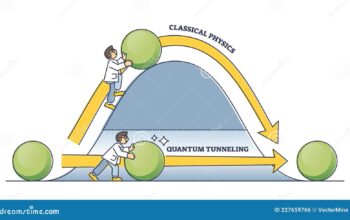As the dawn of quantum computing emerges on the horizon, it stirs an unprecedented excitement within the realms of science, technology, and engineering. The pursuit of this revolutionary technology promises not only exponential speeds of computational processes but also an entirely new paradigm for problem-solving across diverse fields. Contributing to the development of quantum computing is no longer restricted to physicists and computer scientists alone; it offers an inviting landscape for interdisciplinary collaboration. This article delves into various avenues through which individuals and organizations can actively participate in the growth of this transformative domain.
1. Educate Yourself: Building a Strong Foundation
A fundamental step in contributing to quantum computing is cultivating a robust understanding of its underlying principles. Mathematics, particularly linear algebra and complex numbers, forms the backbone of quantum mechanics. Familiarity with classical computing concepts is also essential, as it provides a framework on which quantum ideas can be juxtaposed. Numerous online courses, textbooks, and resources are available to aid in this intellectual journey. Sites like edX and Coursera offer structured courses that cater to varying levels of expertise, from introductory to advanced.
2. Engage with the Quantum Community
Connecting with like-minded individuals and professionals in the quantum computing community can both enhance knowledge and foster collaboration. Participating in forums, attending workshops, and joining professional organizations such as the IEEE Quantum Computing Community or the Association for Computing Machinery can open doors to valuable resources and mentorship opportunities. Networking at conferences also allows aspirants to share ideas, collaborate on projects, and remain informed about the latest developments in the field.
3. Contribute to Open Source Projects
The open-source movement has significantly impacted the advancement of quantum computing. Platforms like GitHub host numerous quantum programming libraries and toolkits, such as Qiskit, Cirq, and QuTiP. By contributing to these projects—whether through coding, documentation, or testing—individuals can not only deepen their practical knowledge but also collaborate with renowned researchers and developers. Moreover, contributing to open-source initiatives reinforces the collective effort towards a knowledge-based economy that thrives on shared innovation.
4. Undertake Research Projects
Contributing to academic or industrial research can be immensely rewarding. Pursuing a graduate degree focused on quantum computing or its related branches (such as quantum algorithms, quantum cryptography, or quantum information theory) allows for in-depth exploration of niche areas. Engaging with leading research institutions or tech companies can provide opportunities to work on pivotal projects that seek to tackle real-world problems utilizing quantum computing. Original research not only contributes to the scientific community but also aids in personal professional development.
5. Advocate for Quantum Literacy
As quantum computing progresses, the importance of quantum literacy increases. Advocating for education initiatives, raising public awareness, and promoting interdisciplinary collaboration are essential for creating an inclusive environment for innovation. Engaging discussions in local communities, schools, and universities can demystify the complexities of quantum computing, encouraging the next generation of thinkers and pioneers. By fostering a culture of curiosity, the act of advocacy cultivates an ecosystem ripe for breakthroughs and discoveries.
6. Explore Career Opportunities in Quantum Technologies
As the quantum industry burgeons, so do the career opportunities it presents. Not only do traditional roles in research and development exist, but positions in project management, policy advocacy, and education are similarly critical. Companies working in quantum computing—such as IBM, Google, and startups like Rigetti Computing—actively seek professionals skilled in quantum mechanics, computer science, and related fields. Exploring these career pathways requires individuals to remain sensitive to the evolving demands of the industry and adaptable to change.
7. Embrace Interdisciplinary Approaches
Quantum computing thrives at the intersection of multiple disciplines. Fields such as materials science, neuroscience, and quantum physics all contribute to the evolution of quantum technologies. Encouraging interdisciplinary collaborations fosters innovation and leads to groundbreaking discoveries. Individuals with diverse skill sets, including artists, philosophers, and engineers, possess unique perspectives that can catalyze new ideas and applications for quantum computing. Embracing an interdisciplinary mindset inspires creativity and expands the boundaries of conventional thinking.
8. Participate in Hackathons and Competitions
Hackathons focused on quantum computing provide an exhilarating platform for practical application of theoretical knowledge. Engaging in these events enables participants to collaborate efficiently, solve complex problems, and experiment with quantum algorithms in a structured environment. Competitions—such as the IBM Quantum Challenge or the Qiskit Hackathon—invite talented individuals and teams to push the limits of quantum technology in concise timeframes. These experiences bolster one’s skills while contributing to the quantum community at large.
9. Stay Informed and Current
The field of quantum computing is characterized by rapid advancements and continuous breakthroughs. Staying abreast of these developments through scholarly articles, podcasts, blogs, and online seminars is vital for anyone wishing to contribute meaningfully. Subscribing to journals such as the “Nature Quantum Information” or following thought leaders on social media can provide insights into emerging trends and research directions. By remaining informed, contributors can align their efforts with current narratives in quantum research and application.
10. Seek Ethical Involvement
As quantum computing progresses, ethical considerations surrounding its applications will become increasingly vital. Engaging in discourse about the ethical implications of quantum technology—including privacy concerns, cybersecurity, and societal impacts—ensures that development continues in a thoughtful manner. Advocating for responsible practices within the quantum space reinforces the broader mission of benefiting society while minimizing potential risks associated with this powerful technology.
In conclusion, the journey of contributing to the development of quantum computing is expansive and multifaceted. As individuals immerse themselves in this captivating field, cultivating curiosity and an interdisciplinary approach becomes indispensable. The collective endeavors of researchers, developers, educators, and advocates will undoubtedly shape a future where quantum computing not only thrives but also propels humanity towards an era of unprecedented possibilities.












